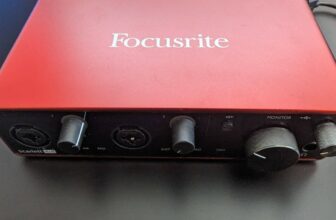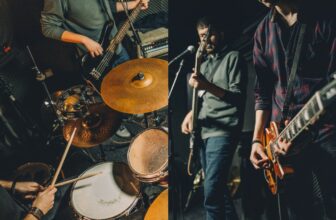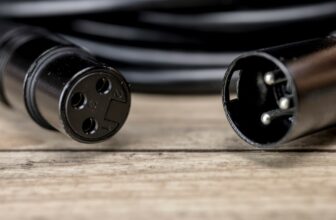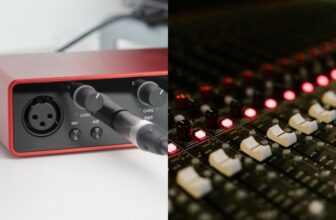What are Music Demos?
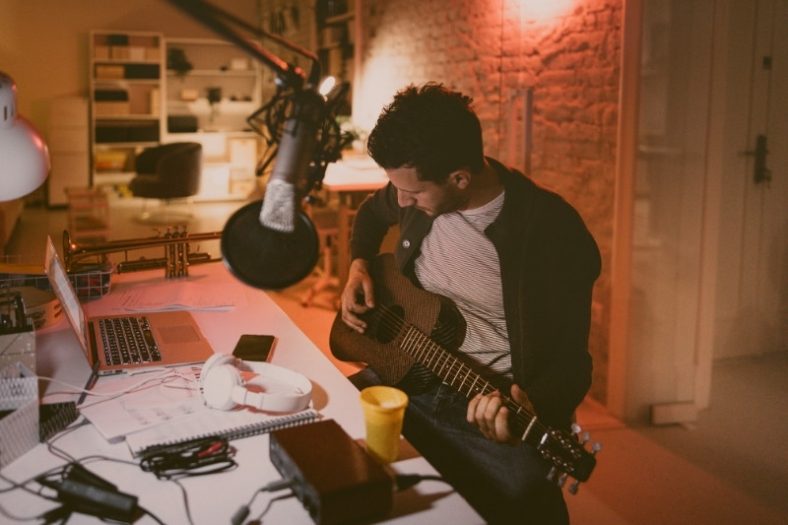
A music demo is a short and simple demonstration of a complete song. It is a draft recorded with basic arrangements and shorter production times than full-production recordings aimed at audiences. Music demos are recorded to show how a song goes to interested parties.
Music demos or demonstrations are quick sketches to show the musician’s work and ideas to record labels, producers, or other artists. It is the step before recording the song with a full-production in a more professional environment for the audience.
Contents
Reasons To Make A Music Demo
There can be many reasons to make a music demo for an artist. It can be just to record some ideas for later use or to send works to recording labels to get their attention, or simply to get feedback from other musicians. In any case, recording demos is a great way to progress as a musician.
Recording Ideas
There is no guarantee where or when inspiration will come to songwriters. That is why capturing thoughts as they occur to you is an excellent approach to build a portfolio from which you can work on them later. This way, you can choose from many different ideas in your catalog when building up a song.
Getting Prepared For Studio Recording
Many artists record their songs repeatedly, refining and fine-tuning the ideas and song itself. This way, they get to master the song’s progression playing techniques while deciding on the essential characteristics of the song like BPM, key, lyrics, etc.
Creating demos in the writing process is crucial to shaping the song as you like. It also helps the recording process to be quicker and easier. When you consider that the professional studios and recording sessions are relatively expensive, the preparation gets even more critical.
A Way To Remember Songs
Many songs are created during the jam sessions. Some examples among many are Moby Dick by Led Zeppelin or A Day In The Life by The Beatles. Recording the ideas from these sessions helps you remember songs and capture the ideas and emotions in their purest form.
Capturing The Emotion
This one may sound weird, but some initial recordings sound better than the others. The first recording of a newly inspired melody often sounds better than the later ones. So, you may use your demo recording, which captures that moment for your final track.
For example, the famous riff of I Can’t Get No Satisfaction by The Rolling Stones was put on the final product from the demo recording for the same reason.
Sharing Ideas With Other Musicians
Recording demos of your musical ideas and compositions is a great way to share opinions and collaborate with other musicians. This way, you can get feedback on your track to evolve it further.
As a result of the cycle of creation, you may experience songwriter’s block in that sense; this is why it’s good to discuss your ideas with other musicians and see if anyone else notices anything that needs to be improved or provides you an idea.
Tracking Your Progression
Another great reason to record demos is to track your own progression with your instrument technique and song-writing skills. You can compare your previous work with the recent ones to see how you evolved, changed, and progressed as a musician, artist, and songwriter.
Sending Your Tracks To Interested Parties
Music demos are regularly used to send drafts and sketches of tracks to recording labels, managers, producers, and venues to get their attention for a collaboration. This is probably the most common reason for music demos. These interested parties listen to demos of new artists to choose who they should work with.
How to make a music demo?
The most essential elements you will need to make a music demo are: your instrument, a microphone (if you are a vocalist) or if your instrument needs miking, a recording device that can be a computer with a DAW, and an audio interface or a dedicated audio recorder device.
Even though demos are not full-production songs that do not need to be perfect, making them as good-sounding as possible is important, especially if you are going to send them to record labels, producers, or any interested party.
I recommend you use a computer and a dedicated DAW instead of audio recorders. There are many free and good DAWs that you can use, like Ableton Live, Garageband, and Studio One Prime.
You can start recording your tracks with a decent audio interface like Presonus Audiobox, Steinberg’s UR12, or Focusrite Scarlett 2i2 (4th gen). If you need a microphone, I suggest looking for condenser microphones, as they are the best for recording sessions.
Learning the recording process and mixing can be challenging and confusing for beginners, but pressing the record button and experimenting is a good way to learn. You can read different blogs and articles on the internet or watch some videos on Youtube to quickly get some tips to learn some tricks.
What to do with your music demo?
The best thing you can do with your music demo is to send it to a recording label to get their feedback and attention. If they like it, they might want to work with you, which can be great for a new artist. You can also send them to producers and managers, as they can help you on your musical journey.
You should show your demo to your family, friends, and fellow musicians before sending them directly to interested parties. Getting feedback and adjusting your song according to it is pretty important as your ear will be quite tired after the heavy work with the same riffs, melodies, and solos. Another ear gets exceptionally important in this situation. After you are sure, you are free to send your demos to as many labels, producers, and managers as you like.
If you are not after working with a label or do not feel ready yet, you can create a catalog of your demos. This way, you can track your progression and share them with friends, other musicians, or whoever you want, whenever you like. You can also use them to create your songs later.
Why opt for a music demo before going to a studio?
Creating various demos of a song before getting into a studio for recording will not only help you master playing the song, but it will also help you see the track clearly to shape and fine-tune it as you like. As studios charge hourly or daily, you will also save money and time being prepared for the recording.
It is crucial to get into the studio with your song 100% ready and finished. You need demos to see how your song sounds and to decide on the essential elements like the song progression, BPM, key, riffs, solos, etc.
Furthermore, you should be ready to play your song as perfectly as possible in order not to spend hours recording in the studio. If you do not want to waste money and time, recording demos are the best way to get prepared for a professional studio recording session.
Summary
Music demos are the first steps through creating fantastic songs and being a great artist. They are the first sketches of your musical pieces, which you look into to shape again and again to make them reach their full potential.
Either you use them to remember your ideas, show them to your fellows or track your progression; music demos are those great mirrors that show us everything clearly. And most important of them all, they are our portfolio to show to interested parties such as recording labels, producers, and managers who can take our musical career to the next level.

